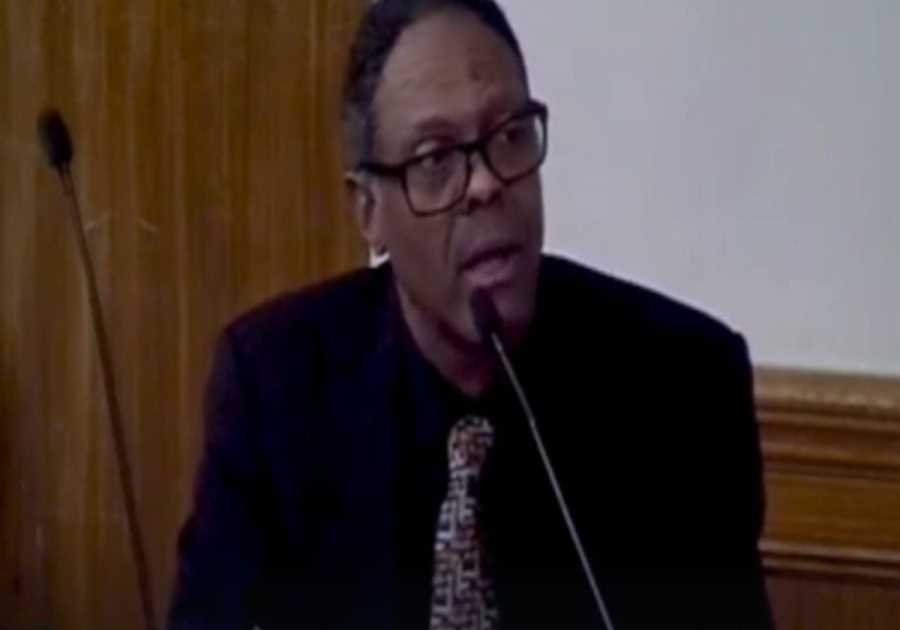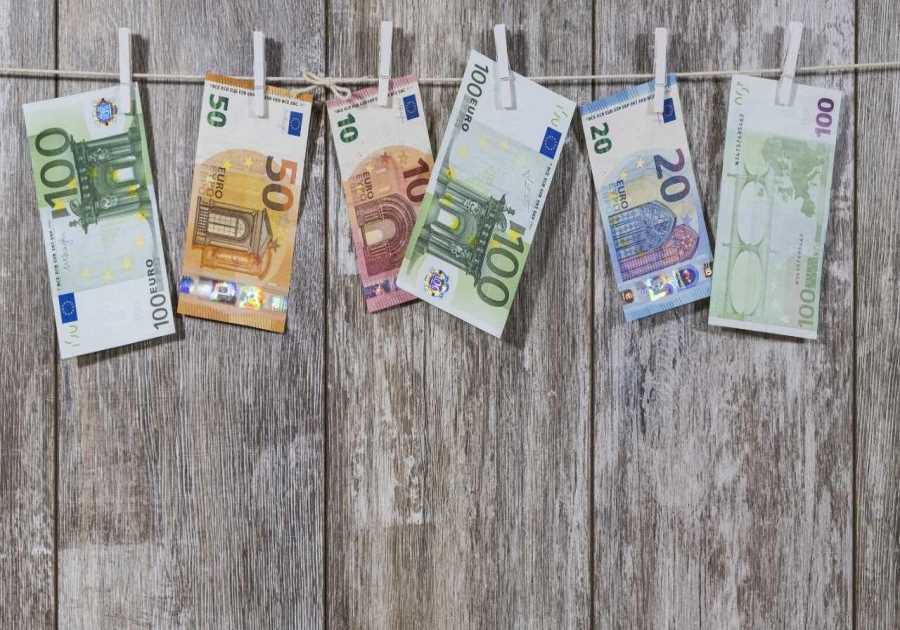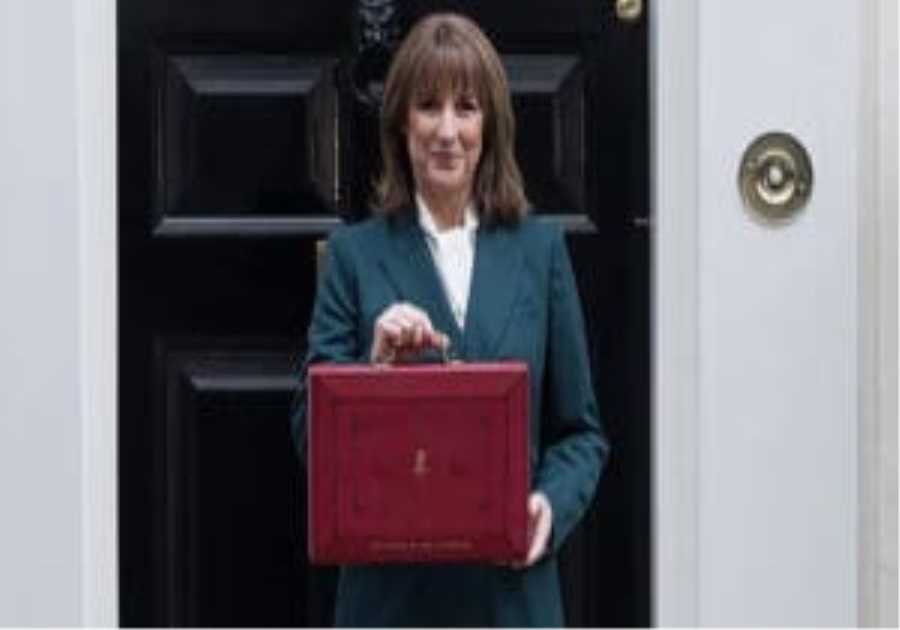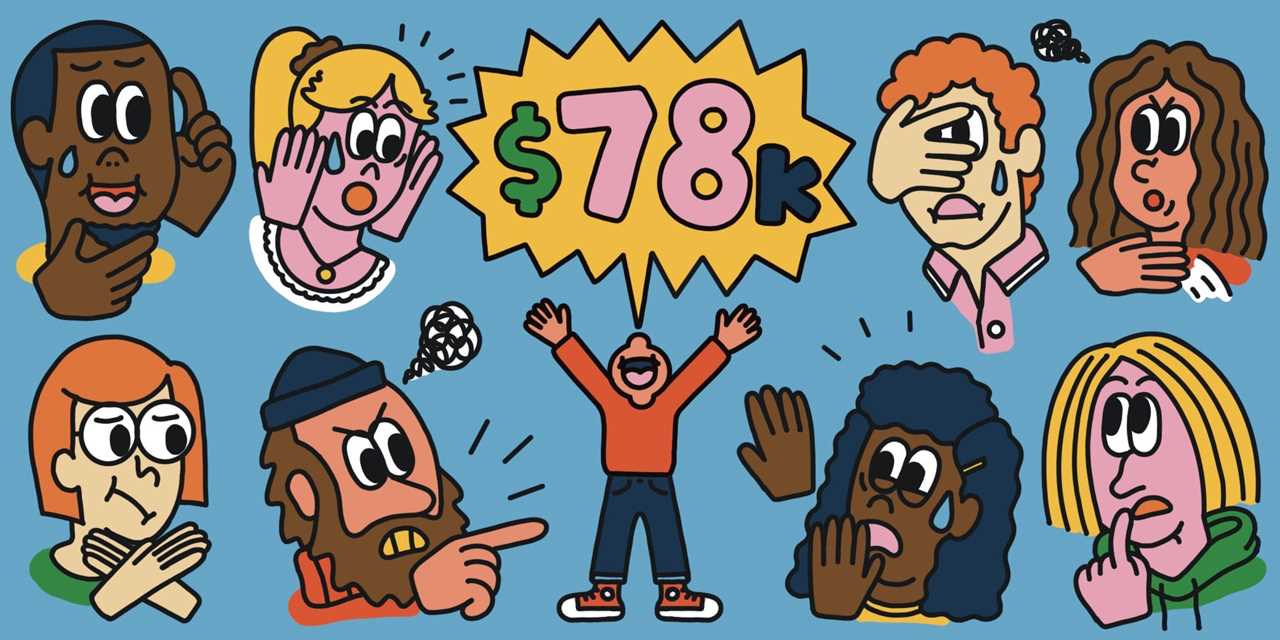
.
We talk about sex and politics and religion. So why is it still so hard to divulge our salaries?
Illustrations by Tiago Majuelos
For a few weeks last fall, I was consumed by a strange habit that had me spending a lot of time on LinkedIn, of all apps. Thanks to a new law implemented by New York City, and in anticipation of legislation passed in California and Washington, employers were doing something for the first time: They were listing the salary ranges for every job opening they were advertising.
For generations, salaries have been one of society's most closely guarded secrets, on par with America's nuclear launch codes and Area 51. Companies don't share them with job candidates, employees don't share them with coworkers — even close friends don't share them with one another. In one survey, when asked which topics were too taboo to discuss with friends, more Americans chose their incomes than marital problems, religious beliefs, political views, mental illness, drug use, and sexual orientation.
But now, there the numbers were on LinkedIn, for everyone to see. Writer at CNN: $77,840 to $144,560. Correspondent at The New York Times: $115,506.56 to $170,000.00. Editorial director at Google: $228,000 to $342,000. Every day I obsessively checked the salaries on LinkedIn's job portal, the way you might keep tabs on Zillow for home prices in a neighborhood you like.
Part of it, I suppose, was voyeuristic — the thrill of getting to see what was previously hidden. But part of it was pragmatic. Knowing what other people make was a way of more accurately gauging my own earning potential. Am I getting paid fairly? Could I — should I — be earning more? The newly listed salary ranges were a treasure trove of data points I could use to calibrate my internal am-I-underpaid-ometer.
Pay-disclosure laws signal a new era of transparency in the workplace. No longer will our salaries be shrouded in secrecy, forcing us to negotiate in the dark for fair wages. Not only are employers being forced to reveal what they pay, but employees are starting to disclose what they earn. They're doing so through anonymous spreadsheets, on Glassdoor and TikTok, and, more radically, among a new generation of workers, in conversations with colleagues and friends.
I'm a true believer in the benefits of this new world. Transparency will fundamentally alter our relationship with our employers and enable us to better advocate ourselves. And there's strong evidence that it will lead to fairer compensation for everyone. With salaries out in the open, it won't be as easy for companies to pay women less than men, say, or new hires more than old hands. Wages will be more like prices — right there on the tag, for all to see.
But there's a glaring catch to my support for pay transparency: I haven't actually practiced it in my own life.
If you're old — as in, over the age of 30 — chances are you share my hypocrisy. You think of yourself as an open person. You support the idea of pay transparency. But be honest — how many times have you told someone what you earn? Aside from my parents, my sister, and my ex, I can probably count on one hand the number of people to whom I've disclosed my salary in my 13 years as a salaried adult. I was a little ashamed to realize there was such a glaring distance between my stated values and my actual behavior. But mostly, I was just curious. Why did the idea of sharing this simple number make me so deeply, unbearably uncomfortable?
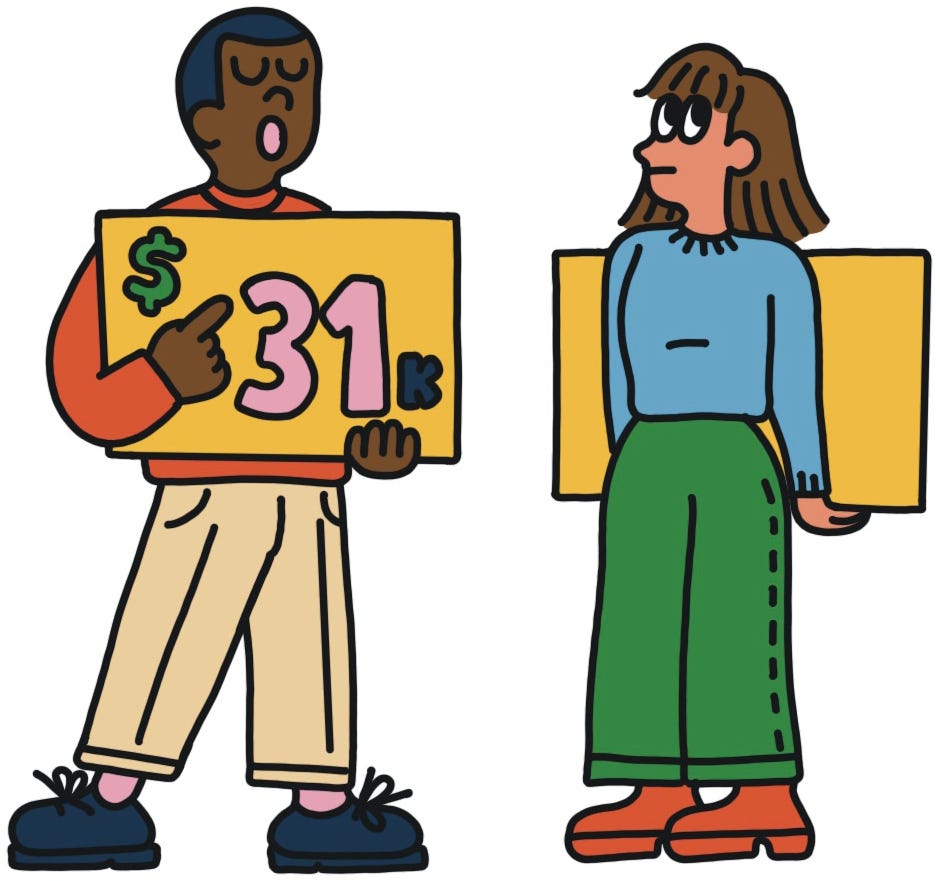
.
To find out why, I decided to commemorate the dawning age of salary transparency by telling pretty much everyone in my life what I earn. What would happen if I was honest with everyone about my paycheck? Would people resent me? Would it make me feel inadequate? Would it feel liberating, or terrifying, or just plain awkward?
My sister, an HR professional, tried to talk me out of it. "Why would you do that to yourself?" she asked. "Why would you do that to the people around you?" But I just laughed. Any risk the experiment posed was still in the future, and therefore theoretical. So I set out to practice what I'd been preaching. All told, I disclosed my salary to 50 or so of my colleagues, friends, professional peers, and sources. I told women I dated, coworkers I had never spoken with before, and a guy I climbed with once and haven't seen since. It was every bit as mortifying as my sister feared. But once I got going, I kind of couldn't stop.
To practice pay transparency requires us to confront a deceptively simple question: Why does it feel so cringeworthy to talk about our salaries? Everyone I asked gave me some version of the same answer: Because we were told not to. The people who did the telling were our parents, our teachers, and our bosses, who had presumably been told the same thing by their parents, teachers, and bosses. So who was the original teller?
American manners, including our prudishness about money, trace back to an era of tremendous upheaval in the 1800s. At the time, the Industrial Revolution was rapidly transforming the country's cities, which experienced an unprecedented wave of migrants eager to work in all of the newly established factories. Suddenly, strangers from diverse backgrounds and cultures needed to somehow get along without killing one another.
Enter etiquette manuals, which appeared in the 1830s and "swelled to a torrent" by the turn of the century, according to the historian John Kasson. The manuals stepped in to provide Americans with a standardized code of conduct. Within this code was, as Edith Wharton recalled of her privileged upbringing in New York, to "never talk about money, and think about it as little as possible." By the time Emily Post's standard-bearer, "Etiquette in Society, in Business, in Politics, and at Home," was published in 1922, the money taboo was firmly entrenched. "Only a vulgarian talks ceaselessly about how much this or that cost him," she wrote. "A very well-bred man intensely dislikes the mention of money, and never speaks of it (out of business hours) if he can avoid it."
It was no fluke that etiquette writers worked so hard to obliterate any instinct people might have had to discuss their finances. As unchecked capitalism exploded, income inequality soared, and the ensuing class divide made a mockery of America's democratic ideal of equality. For the bourgeoisie, the convenient solution was to simply pretend that inequality didn't exist — which required convincing everyone to keep quiet about what they were paid. "Attempts to inculcate a common standard of 'polite behavior' masked high ideological stakes," Kasson writes in "Rudeness and Civility: Manners in Nineteenth-Century Urban America." "Manners provided yet another way of avoiding talking openly about the dirty secret of class in America."
.
Corporations, which sought to dominate every aspect of pay negotiations, had an obvious stake in the code of silence. One early clash took place at Vanity Fair in 1919. After managers at the magazine discovered that several employees had discussed their salaries with one another, the staff came to the office one morning to find a terse memo on their desks. "The salary question is a confidential matter between the employer and the individual," the memo said. "It is obviously important that employees carefully live up to this rule in order to avoid invidious comparison and dissatisfaction." Anyone who dared to disclose their pay again would be fired. Vanity Fair writers might be paid to share tittle-tattle about the affluent class, but under no circumstances could they speak with one another about their own wages.
The staff refused to back down. In sly protest, several editors, including the poet Dorothy Parker and the humorist Robert Benchley, marched around the office in silence, wearing signs around their necks. In big block numbers, the signs displayed their weekly pay.
I never faced the kind of showdown that Parker and Benchley did. But I did get in trouble once for talking about my salary. It was early in my career, when I was a reporter in Tokyo. An intern who was interviewing for a full-time position at our publication asked me for my advice on the starting salary she was offered. It was a little bit less than I'd gotten when I was promoted from intern to reporter, and I told her so, disclosing what I had been offered. I was nervous, but here was a fellow young, female reporter who needed my help. It seemed like the right thing to do. I trusted that she would be discreet.
She wasn't. A few days later, two senior managers summoned me to a quiet corner of our open-plan office. What they told me was along the lines of that's not how we do things around here. My bosses were nice about it, but it was clear they were embarrassed they had to have the conversation with me, which made me even more embarrassed to have made them broach the issue. It was as if they had caught me watching porn in the office: I had stepped outside the acceptable bounds of behavior. I apologized profusely and promised it would never happen again. I was furious with my colleague, and the experience stayed with me.
This kind of policing takes place every day in corporate America, even though, in most cases, it's against the law. For decades, the courts have ruled that salary-sharing is a "concerted activity" protected by the National Labor Relations Act. But that hasn't stopped employers from continuing to impose "pay secrecy" policies like the one Parker and Benchley encountered at Vanity Fair. A survey conducted in 2017 found that 48% of full-time workers were discouraged or barred by their employers from discussing their salaries. "Employers can thumb their nose at the law because they know they can get away with it pretty easily," Jake Rosenfeld, a professor of sociology at Washington University in St. Louis, told me. Even over the past decade, as states began to pass their own laws making it illegal to retaliate against employees who disclose their salaries, the cultural taboo didn't seem to budge. Emily Post would have been proud. After a century-plus of etiquette training, "well-bred" Americans just weren't willing to discuss their pay — even if they couldn't be fired for it.
.
If workers weren't going to open up about their salaries on their own, transparency advocates decided to force employers to do it. In 2021, Colorado became the first state to compel companies to publicly disclose their pay ranges in job ads, for everyone to see. The law proved overwhelmingly popular, and legislators across the country rushed to introduce similar bills. As leading job markets like New York City and California began imposing pay transparency, large employers like Microsoft, Google, Citi, and American Express decided to embrace the inevitable and include salaries in all their US job postings. During the first week of January, according to the workforce-data providers Revelio Labs and LinkUp, 31% of job listings included pay ranges, up from 14% at the beginning of 2016.
Today, employers are scrambling to prepare for the emerging era of pay transparency. They're running analyses of pay equity in their workforces, to check for hidden biases. They're making sure their current employees fall within the published salary ranges, and they're training managers to have effective conversations with employees about their pay. It's not just because employers fear that job seekers, armed with more information, will drive a better bargain. They're worried that the public information will spark a revolt among their existing employees, who will finally be able to see what others in the same roles are getting paid. As salaries become increasingly transparent, the "dirty secret of class in America" is going to get dragged into the light.
Syndio, a software developer that helps companies analyze their pay data for disparities, has been inundated by calls from nervous employers. "Can you look at your employees with a straight face and say, 'Employees are paid fairly, and this is why employees are paid where they are?'" says Christine Hendrickson, a longtime employment lawyer who serves as Syndio's vice president for strategic initiatives. "People will want to know, 'How do I get higher in the range?' Employers need to be able to answer those questions."
It was in this moment of peak transparency that I decided to commence my own experiment.
I started with my coworkers. "I'm hoping to talk to a bunch of colleagues about whether they talk about their pay openly with colleagues/friends/family/partners, and why," I wrote in a note on Signal. "As part of the chat, I'll be telling you what I earn too." This felt like a good way to ease into my newly transparent life. People would be choosing to have this conversation with me. They had ample warning that I'd be dumping this potentially unwanted information on them.
That's not to say I wasn't nervous. Most of my colleagues in the newsroom make less than I do, which is a product of my years of experience. (At 36, I'm geriatric by Insider standards.) With those I outearn by a lot, it felt tacky acknowledging the gigantic differences in our salaries out loud. And even though I'm not the one who decided our compensation packages, I felt guilty earning so much more than they do, and I worried that they might resent me for it.
As I sweated my way through the first few conversations, I found myself stumbling over my salary number. I would go on an extended tangent, attempting to make sense of my much-larger paycheck (my prior work experience, my beat, my sheer luck). I would emphasize that I don't believe I deserve to earn tens of thousands of dollars more than they do. At a time when incomes are more unequal than ever, talking about them felt painful and divisive. I became evasive and defensive and apologetic. The taboo was deeply ingrained, and it was harder than I expected to overcome it.
I became evasive and defensive and apologetic. The taboo was deeply ingrained, and it was harder than I expected to overcome it.
But it didn't take me long to realize that my younger colleagues were a lot more relaxed about our salary differential than I was. Several who are only a few years out of college told me that they routinely share their pay level with others — so routinely, in fact, that they know what pretty much all of their friends make. To them, telling someone what they earn is as ordinary as talking about the day-to-day responsibilities of their jobs.
I was stunned. To test their comfort level, I would end the conversation by asking them whether they felt any differently about me, knowing what I made. They said they didn't. If anything, they were glad to know.
"Obviously I'm a little jealous," said one reporter who made less than half what I do. "But if you can make that much, I can probably make that much too one day. You have a title that's two or three rungs above me and at least five more years of experience. I'm like, 'OK, that's something that I can work and grow towards.'"
I shouldn't have been so surprised. In 2017, when the sociologist Jake Rosenfeld asked Americans whether they talked to colleagues about their pay, the survey results broke cleanly along generational lines. Almost 50% of people under 30 said they had shared their salaries with colleagues — compared with 43% of those in their 30s, 31% of those in their 40s, 26% of those in their 50s, and 23% of those 60 and older. And that was before Gen Z began flooding the workforce. The salary taboo is clearly on its way out, even among creaky old millennials like me.
Next, I turned my attention to my sources I spoke with for this story — scholars, employment lawyers, and business executives. I decided to save the disclosure until the end of the interviews, in case things got awkward. Most of the time, as soon as I blurted out my salary, both my source and I would erupt in nervous laughter — probably because neither of us knew what to say. I was speaking with some of them for the first time, and I didn't expect any of them to reciprocate. But to my surprise, about half of them did. I thought that was pretty cool.
The conversations with my friends proved harder. Remembering one of my sister's warnings — "What if they don't want to know?" — I asked for their consent before I sprang my salary on them. Tellingly, none of my friends in San Francisco who work in tech shared their salary back. "Oh," a sweet and accomplished software engineer at a large tech company responded when I told him my salary. He was silent for a moment, likely racking his brain to come up with a positive response. Then, as if to console me, he gently added: "That's a lot … for a journalist, right?" Later, sleuthing around on the website Levels.fyi, which aggregates salary information from big tech companies, I estimated that he likely outearns me by at least a factor of three.
I didn't blame him or my other friends in tech for not reciprocating. It's uncomfortable learning that you earn substantially less than your friends. But it turns out it's even more uncomfortable learning that you earn substantially more. "Holy shit!" a friend in healthcare responded when I told her. "I always knew you earned more than me, but that's a whole lot more." I worried that I might have made her feel bad, since she also didn't share back. I wondered whether it was better just to continue pretending we all live more or less within similar means, even if that isn't true.
.
Still, none of that matched the dread I felt heading into my experiment's final frontier: my dating life. Early on, when I was discussing my experiment with one of my colleagues, he hypothesized that our discomfort around salary-sharing stems not just from our cultural brainwashing but from the fact that it's something we discuss only with the people closest to us — a significant other, say, or a best friend. So the act of sharing this private detail about myself on a date felt like an escalation of intimacy. I tried to remember when I first told my ex what I earned. It was certainly well after the first time she told me she loved me. Was it when we moved in together? When we got married? When we started talking about the life we wanted for our future kids?
Which brings me to a confession: On every one of my first dates, I chickened out. I spent half of a date with an emergency-room doctor telling her about the experiment I was engaged in, but I couldn't bring myself to actually share my salary. I also lost my nerve with two marketing professionals in tech. In the context of dating, disclosing what I earn just felt too loaded — as if I were already preparing to build a life with them.
I did force myself to tell one woman, an attractive epidemiologist, on our fourth date. I told her about my experiment and all the tangents of it that I found interesting, and she told me that, like me, she had shared her salary with very few people in the past. We talked about why that was. And then, huddled close to each other for warmth on the chilly patio of a Spanish restaurant in downtown Napa, I told her my salary and she told me hers. As my colleague predicted, the disclosure felt deeply intimate, as if we had crossed some kind of relationship milestone. I felt really close to her.
How crazy is it, I thought, that I know exactly what this person earns, even though we hadn't even slept together? Then again, who's to say that one is more private or intimate than the other? It suddenly felt so arbitrary and absurd that we've come to hang so much meaning on this one particular detail of our lives.
Perhaps the biggest reason we consider our salaries to be so private is that we see them as an approximation of our personal value to the world. But my date's work as an epidemiologist informs the global fight to halt the spread of one of the leading causes of death in developing countries. Mine informs white-collar professionals about the ups and downs of the job market. In no universe does my contribution to society come close to hers. And yet, the strange logic of American capitalism rewards me with a paycheck that's about 30% larger than hers.
A few days later, the hot epidemiologist texted to break things off. It seemed to be for reasons unrelated to our salary chat (I think?). But the rejection barely registered. I was riding high, believing that I had successfully completed my little experiment — that I had eliminated the distance between what I believe about pay transparency and how I live it. I was just like my cool, taboo-breaking Gen Z colleagues I so admired.
Then, out of the blue, I got an email from our union's bargaining committee. "We are planning to remove the stigma around talking about pay and show Insider the gross disparities that exist among us," the email read. "Please join us in updating your Slack status… with your annual salary (for example, 💰 $70,000)."
Wait — what?
My first instinct was to pretend I missed the email. But then the texts from my colleagues started rolling in. "Interesting union action coming up," one said. "I'm v curious to see who does/doesn't do it." And there went my alibi.
I pinged a few of the older, more experienced reporters in the newsroom to see what they were going to do. "No fucking way," one said. Another wasn't sure, worried that people would think they didn't deserve to earn so much. I was jealous my colleagues still had an option. Unlike me, they hadn't announced to the whole newsroom that they were writing a big feature about pay secrecy. Was there any way I could get out of it without looking like a huge hypocrite?
I couldn't think of one. So, on the designated morning, I reluctantly went on Slack, searched for the money-bag emoji, and appended it to my status, along with my salary. I had gotten to the point where I was mostly OK telling total strangers what I earn, as long as I could explain in detail why I was doing it. But displaying my salary on Slack for all my coworkers to see, without any context, felt like a whole different beast — the digital equivalent of screaming it in the face of every colleague who messaged me. Something about it felt aggressive, almost violent. I heard my sister's voice in my head again. What if they don't want to know?
My informal tally was stark: 113 made less than $100,000, and 13 people, including me, made more than that.
Still, that didn't stop me from wanting to know who else had disclosed their earnings — and what their earnings were. I typed in the names of a few colleagues who I knew or suspected earned in my pay range, but I didn't see any salaries decorated with money-bag emojis. Then I clicked into our all-employee Slack channel and scrolled through the member list.
On the afternoon of that first day, my informal tally was stark: 113 people who made less than $100,000 versus 13 people, including me, who made more than that. As far as I could tell, I was the highest earner who had participated in the union action — until I persuaded one colleague to join in on the fun. He said he was worried about looking like a jerk, flaunting the size of his salary. But I told him what the younger writers had told me — that it was helpful to see exactly how high their earning potential could be.
I kept telling myself that as I battled the urge to take down my own money bag. Our union wanted us to keep it up until the following week. But by Friday morning, I needed to ask my editor a question that couldn't wait. And asking would involve Slacking him — calling his attention to the fact that I was broadcasting my salary to the entire company. I didn't want him to think I was ungrateful.
I sat at my laptop, trying to decide what to do. I thought about Dorothy Parker and Robert Benchley walking around the Vanity Fair office with their salary signs hanging from their necks. Were they nervous wrecks like me? Or were they as calm and collected as my braver, younger colleagues?
Then I caved and cleared my status. I waited a few minutes and Slacked my editor, money-bag free.
By now, you're probably wondering — what exactly is my salary? My editor said it would be a cop-out not to tell you, but I just can't do it — not even after going through this whole ordeal over the past few months. My official rationale is that such an announcement would handicap me in salary negotiations with future employers. But even if it didn't, the prospect of having an unlimited number of strangers on the internet know what I make just creeps me out. (But if you know me, feel free to ask and I will probably tell you.)
You know whose salary is on the internet? The entire population of Norway. Tax records there have been public since the middle of the 19th century, but they became really public in 2001, when media outlets started making those records searchable online. Instantly, salary snooping became a national pastime. Everyone was looking up the pay of their neighbors, their crushes, their relatives who were always bragging about their latest vacations. There were even apps that showed you where you ranked on a salary leaderboard of your Facebook friends.
Even the Norwegians, who are famously progressive and transparency-minded, were horrified. (Local media called it "tax porn.") But Norway being Norway, they didn't take down the salary information. They just decided to out the snoopers. Now, anyone whose tax records are searched can see the identity of the searcher. Norway responded to pay transparency with yet another level of transparency, and that brought down the level of snooping.
.
Thanks to its nationwide experiment, Norway has been fertile ground for scholars trying to measure the consequences of extreme pay transparency. After everyone's salaries went online, one study found, the gap in well-being reported by the rich and the poor widened — presumably because the salary info made the rich feel good about their relative wealth and the poor feel shitty. Ironically, the unhappiness gap grew even though, by one estimate, pay inequality inside Norway's companies had actually narrowed following the disclosures. People were more equal in pay but, deprived of ignorance, less equal in bliss.
While reducing income inequality is a good thing on a national scale, management scholars get worried when salaries even out within a company. It's good if people who are performing similarly earn the same regardless of, say, their gender or race or sexual orientation. But it's bad if people who are performing differently earn the same: That means managers are failing to reward great work. Research suggests, uncomfortably, that pay transparency is having both effects simultaneously.
In one study, researchers found that when the salaries of university professors were made public, gender disparities in pay declined. (This effect of transparency is one of the most robust findings in the research, making transparency legislation a slam dunk for equal-pay advocates.) But those same public disclosures also weakened the link between what professors earn and objective measures of their work. Pre-transparency, academics with "star levels of performance" could expect to be paid 22% more on average. Post-transparency, that premium dropped by nearly half.
Why? Because pay transparency puts bosses under a microscope. "No manager wants to have to deal with an unhappy employee," says Peter Bamberger, a professor of organizational behavior at Tel Aviv University and a research director at Cornell University's School of Industrial and Labor Relations. "When everybody's going to be watching you, when you're going to be under scrutiny, the easiest way for managers is to pay everybody more or less the same. You get fewer hassles that way." Bob gets as much as Carol, because they hold similar jobs. But Carol works way harder and gets twice as much done. Is that fair? It certainly isn't efficient. Equity isn't always equitable.
Still, Bamberger thinks pay transparency will ultimately benefit employers as well as employees. Many companies, he says, are saddled with "patchwork" pay structures that make no sense. The scrutiny that transparency brings will force organizations to rebuild those structures — something that will be a huge pain at first but will help them operate more effectively in the long run. "A lot of employers build a pay system and then, to make sure that they don't lose key employees, they give someone an increase and say, 'Shhh, don't tell anybody.' Eventually the whole pay system is just patches on top of patches, and it's a mess. That's not good for anybody. So in that regard, transparency is actually going to bring a lot of benefit to everyone."
It's not as if pay transparency will prevent employers from rewarding some employees more than others. A study co-authored by Bamberger found that when pay decisions become more transparent, salaries start to equal out — but managers end up giving better benefits to favored employees. The research simply confirmed what every employee already knows: Bosses have a sneaky way of paying certain people more when no one's looking.
"Companies will be more public about salaries, possibly, but you're still going to have inequities in other forms," says Felice Klein, a professor of management at Boise State University. "To fully address the issue, individuals as well as companies need to disclose more about all forms of pay."
The big advantage of the new pay-disclosure laws is that they place the burden to open up on employers. One equal-pay advocate I talked to went as far as to suggest that, with these new laws, it's no longer necessary for employees to go through the discomfort of face-to-face disclosures. I'm not as optimistic. But I do believe that as more states implement pay-disclosure laws — and as Gen Z increasingly comes to dominate the workforce — salary transparency is going to become the new norm.
Younger workers are already nudging us all into a less secretive, more forthright attitude toward our paychecks — none more so than Hannah Williams, the 26-year-old proprietor of Salary Transparency Street, a wildly popular TikTok account. Williams regularly ventures forth to accost strangers on the street and ask them to reveal their pay to her 1.6 million followers.
Williams estimates that for every person who agrees to share their salary on camera, another 10 or so decline. Her batting average is highest among Gen Zers, women, and those who earn $50,000 to $150,000. Her goal isn't to force people to out their salaries to strangers — it's to inspire the rest of us to share what we make privately, in our everyday lives. "We've heard from people that they talked about our videos with their colleagues at work," she tells me. "They would set up a powwow and talk all together about their salaries."
Many of the pay-transparency experts I spoke with are a lot older than Williams. Most were amused by my experiment with transparency, and a few chimed in with stories about their own stomach-churning attempts at opening up. "I'm working on it," says Helena Almeida, a vice president at the payroll company ADP. She recently disclosed her salary to some younger professionals in her field. "I told them," she says, "and somehow the world didn't collapse."
In the end, my world didn't collapse either. Given how nervous I was about telling everyone, I would have considered that a perfectly good outcome on its own. But that wasn't the only upside. I also got incredibly useful information out of my experiment — because I ended up talking to two colleagues who, I discovered, made substantially more than I do.
A year ago, I didn't even know there were reporters who made more than me at Insider. I assumed that I had more or less hit the ceiling of what I could earn as a reporter. But in the middle of last year, on a whim, I asked the union whether I could see the pay bands for reporters with my title and the one above mine. I was stunned by the numbers: I was nowhere near the ceiling.
.
Talking to my two better-paid colleagues through my experiment gave me valuable context. Before, the numbers were just numbers; now, they tell entire stories. I learned about the previous jobs my coworkers had, and what they earned. I learned about how they negotiated their salaries and the circumstances that helped their case. As I prepared for my annual performance review, I realized I was going in with so much more information than I'd ever had. Which is how, the other week, I found myself doing something I had never done before: I asked my boss for a raise.
Dorothy Parker, too, had asked for a raise at Vanity Fair. She was in her mid-20s, only a few years into her career, but she had become a star writer, and an industrious one too, writing theater reviews, contributing poetry, reading manuscripts, and helping out with editing and proofreading. But her pay hadn't kept up with her growing responsibilities or acclaim. She must have known what Robert Benchley and another male editor at the magazine earned, since the three of them were such close friends. If she didn't, she certainly found out when they paraded around the office with their salary signs around their necks.
"I'd like to have money," Parker confessed decades later. "And I'd like to be a good writer. These two can come together, and I hope they will, but if that's too adorable, I'd rather have money." Perhaps, if we're bold enough to follow her lead and break our silence around salaries, we can have both. Perhaps our wages will come to equal our aspirations and our talent. All we have to do is put our mouths where our money is.
Aki Ito is a senior correspondent at Insider.
Read More
By: [email protected] (Aki Ito)
Title: I decided to tell everyone in my life how much I make — even on first dates
Sourced From: www.businessinsider.com/salary-pay-transparency-jobs-income-taboo-equity-2023-1
Published Date: Mon, 16 Jan 2023 10:54:00 +0000
.png)
